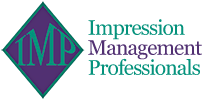So which is more important reason or emotion? If you look at most of the training that is done in companies you will see it is often based in reason- if I show you what you should be doing and why you will do it. But the reality is that much of that learning doesn’t stick because it doesn’t address who you are at your core; it doesn’t look at what your beliefs are and why they do or don’t serve you well.
David Brooks recently talked about this in a New York Times article. He said, “This growing, dispersed body of research reminds us of a few key insights. First, the unconscious parts of the mind are most of the mind, where many of the most impressive feats of thinking take place. Second, emotion is not opposed to reason; our emotions assign value to things and are the basis of reason. Finally, we are not individuals who form relationships. We are social animals, deeply interpenetrated with one another, who emerge out of relationships.”
The long and short of it is that you must have BOTH reason and emotion in order to have rational thinking. Outcome Thinking® is a barometer that links these two sides together in a powerful way so that situations that used to hijack your brain- like presenting, negotiating, problem solving or selling- are now handled so that you say the right thing at the right time. Think of your brain like a dictionary. If you don’t have a clear index your brain will chose the same words and results over and over because they are familiar and comfortable for you. In order to reach in and access all the great information in your brain you need a clear index that makes it easy for you to do that on the fly. That is what Outcome Thinking® does for you.
I encourage you to read the entire article so you can evaluate the following: How good am I at allowing all aspects of my team to show up each day? Do I acknowledge and manage the emotions or do I let them manage me? Do I teach my sales team how to be in their client’s shoes or do I train them on our products and services?
Soft skills are the hard dollars of the future. Make sure you are banking all of yours!
To view more of the article click on this link- http://www.nytimes.com/2011/03/08/opinion/08brooks.html?scp=1&sq=the%20new%20humanism&st=cse

I love the expression. Everyone needs to express there own opinion and feel free to hear others. Keep it up :)
This information helpes me a lot. Nice post.
Hi, I was just doing some research for a new video I’m going to make and wound up here. Looks like you have some interesting stuff. . . I’m doing some translations of stuff nobody has seen before and putting it up so feel free to stop by and check it out. I think it might be interesting to you. :)
I truly find this a interesting subject. Never looked at this subject in this manner. If you are going to write some more articles about this subject, I definitely will be back soon!
Saying thanks will definitely not just be sufficient, for the fantastic clarity in the posting. I will certainly grab your rss feed to stay informed of any updates. Admirable work and much success in your business endeavors!
Hi my loved one! I wish to say that this article is awesome, nice written and come with approximately all vital infos I would like to look more posts like this
I happen to be writing to let you know what a fantastic experience my daughter encountered studying your webblog. She noticed lots of things, which included what it is like to possess a very effective helping style to let folks without difficulty fully understand specified complicated topics. You undoubtedly surpassed readers’ expectations. Thanks for distributing these precious, trustworthy, informative and also cool tips about this topic to Janet.